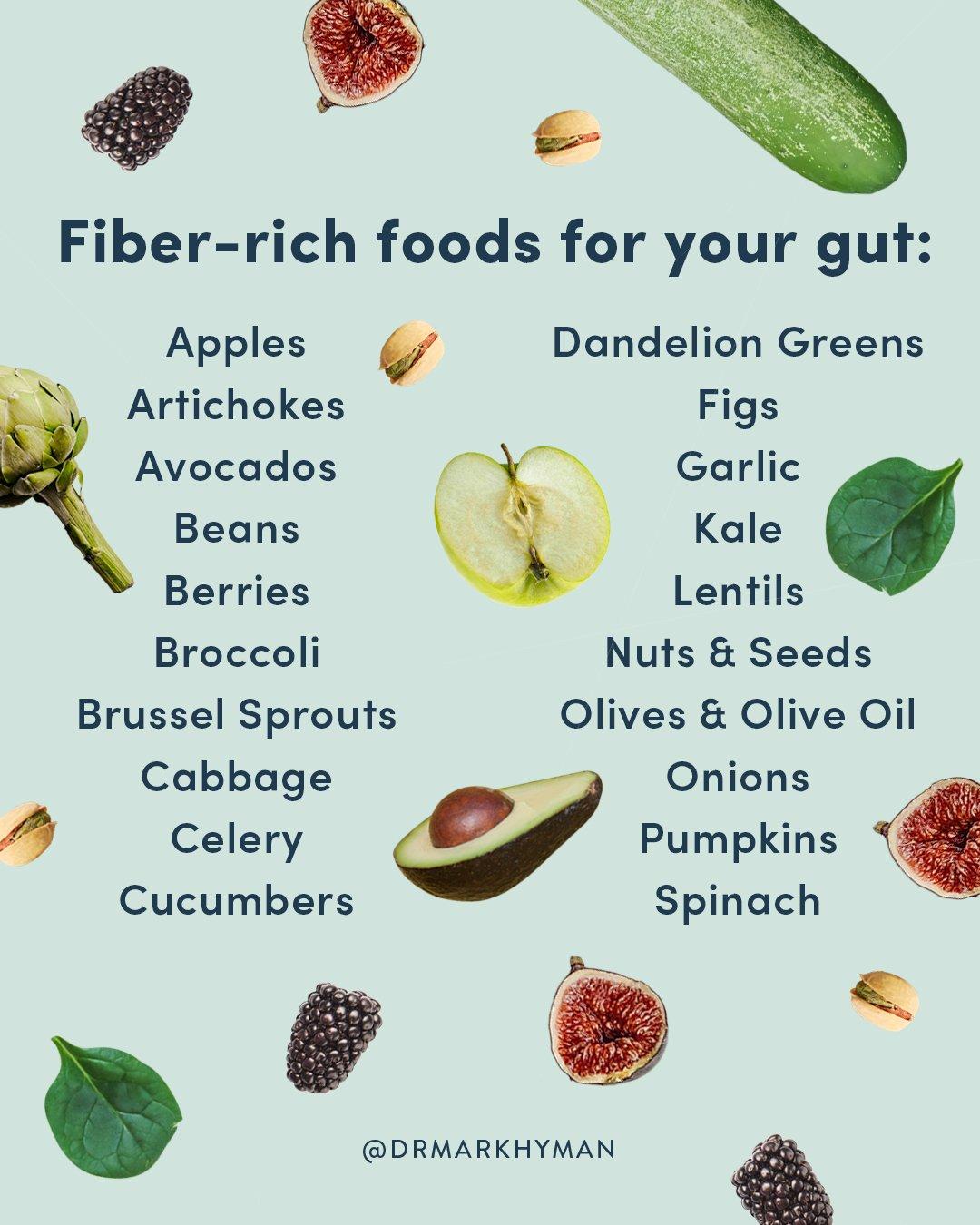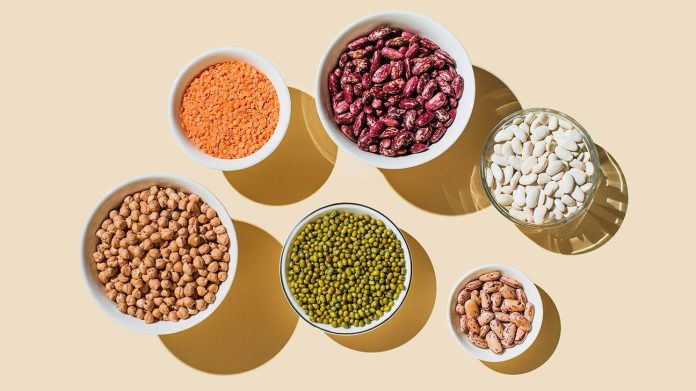In the bustling world of nutrition, where trends come and go as swiftly as the seasons, one timeless element continues to hold its ground as a cornerstone of health: fiber. Often overshadowed by its more glamorous counterparts like protein and antioxidants, fiber quietly weaves its magic through our daily meals, offering a plethora of benefits that are as diverse as they are profound. Imagine a humble hero, working tirelessly behind the scenes to enhance your well-being, from bolstering your digestive health to supporting heart vitality. In this exploration, we delve into the manifold benefits of adding more fiber to your diet, unveiling the subtle yet significant ways it can transform your health journey. Whether you’re a seasoned health enthusiast or someone taking the first steps towards a healthier lifestyle, understanding fiber’s role is a gateway to a more balanced and vibrant you.
Boosting Digestive Health with Natural Fiber Sources
Incorporating more fiber into your diet can be a delightful journey, offering a plethora of health benefits. Natural fiber sources not only support digestive health but also play a vital role in maintaining overall wellness. A diet rich in fiber aids in regulating bowel movements, reducing the risk of digestive disorders, and enhancing the body’s ability to absorb nutrients efficiently. By integrating these natural sources into your meals, you can enjoy a more balanced and nourishing diet.
- Fruits: Apples, pears, and berries are not only delicious but packed with soluble fiber that helps soften stool and improve digestion.
- Vegetables: Leafy greens, carrots, and broccoli are excellent sources of insoluble fiber, promoting regularity and preventing constipation.
- Whole grains: Brown rice, oats, and quinoa are fiber-rich grains that provide long-lasting energy and support digestive health.
- Legumes: Beans, lentils, and chickpeas are high in both soluble and insoluble fiber, making them perfect for a hearty, gut-friendly meal.
- Nuts and seeds: Almonds, chia seeds, and flaxseeds are nutrient-dense snacks that boost fiber intake while satisfying hunger.
Embracing these natural sources in your daily diet not only elevates your digestive health but also contributes to a more vibrant and energetic lifestyle. Remember, a fiber-rich diet is a cornerstone of well-being.

Unlocking Heart Health through a Fiber-Rich Diet
Embracing a fiber-rich diet can be a transformative step towards enhancing your heart health. Fiber, particularly soluble fiber, plays a pivotal role in reducing cholesterol levels, which in turn helps in lowering the risk of heart disease. Foods high in soluble fiber form a gel-like substance in the digestive tract that can bind with cholesterol particles and escort them out of the body before they enter the bloodstream. This process not only aids in maintaining a healthy heart but also supports overall well-being.
- Oats: A breakfast staple that can kickstart your day with a heart-healthy boost.
- Beans: Rich in soluble fiber, they are a versatile addition to any meal.
- Fruits: Apples, oranges, and berries offer a sweet and nutritious way to increase your fiber intake.
- Vegetables: Incorporate more carrots, broccoli, and artichokes for a fiber-rich diet.
Moreover, fiber aids in managing blood pressure and reducing inflammation, two key factors that influence cardiovascular health. Incorporating a variety of fiber-rich foods into your daily diet can create a protective shield for your heart, fostering a lifestyle that champions longevity and vitality. With each bite, you’re not just feeding your body, but also nurturing a heart that beats with strength and resilience.

Managing Weight Effectively with Fibers Filling Power
Incorporating fiber into your daily meals can be a game-changer when it comes to achieving and maintaining a healthy weight. Fiber-rich foods have a unique ability to keep you feeling full and satisfied, which can help curb unnecessary snacking and overeating. This satiating effect is due to the way fiber absorbs water and expands in your digestive system, creating a natural sense of fullness. As a result, you may find yourself consuming fewer calories without even trying.
Beyond its hunger-busting prowess, fiber also plays a crucial role in regulating your digestive system, which is essential for optimal weight management. Here are some benefits of adding more fiber to your diet:
- Improved Digestion: Fiber helps to keep your digestive tract running smoothly, reducing bloating and discomfort.
- Blood Sugar Control: By slowing the absorption of sugar, fiber can help maintain steady blood sugar levels, preventing energy crashes and sugar cravings.
- Heart Health: A diet high in fiber can help lower cholesterol levels, supporting overall cardiovascular health.
To harness these benefits, try incorporating more fruits, vegetables, whole grains, and legumes into your meals. Not only will this enhance your dietary fiber intake, but it will also provide a wealth of vitamins and minerals that support overall well-being.

Balancing Blood Sugar Levels with Dietary Fiber
One of the remarkable advantages of increasing your dietary fiber intake is its ability to help regulate blood sugar levels. This is particularly beneficial for individuals managing diabetes or those seeking to prevent it. Dietary fiber, especially the soluble kind, slows the absorption of sugar, leading to more stable blood sugar levels throughout the day. This can help reduce the risk of insulin spikes and crashes, which are often the culprits behind energy slumps and cravings for sugary snacks.
- Soluble fiber, found in foods like oats, legumes, and certain fruits, forms a gel-like substance in the digestive tract that can help moderate blood sugar levels.
- Insoluble fiber, present in whole grains and vegetables, while not directly affecting blood sugar, contributes to overall gut health, which can indirectly support better blood sugar control.
By incorporating a variety of fiber-rich foods into your meals, you not only harness the power of fiber to balance blood sugar but also enjoy a more diverse and satisfying diet. Remember, it’s not just about adding more fiber but choosing the right kinds that work best for your body’s unique needs.
Wrapping Up
In the grand tapestry of nutrition, fiber emerges as a humble yet powerful thread, weaving its way into our daily lives with the promise of vitality and balance. As we’ve journeyed through the manifold benefits of embracing a fiber-rich diet, from promoting digestive health to aiding in weight management, it becomes clear that this often-overlooked nutrient is indeed a cornerstone of well-being. By incorporating a variety of fiber-rich foods into our meals, we not only nourish our bodies but also cultivate a lifestyle of mindful eating. So, as you stand at the crossroads of culinary choices, let fiber guide your path to a healthier, more vibrant you. it’s not just about adding years to your life, but life to your years—one fiber-filled bite at a time.


































